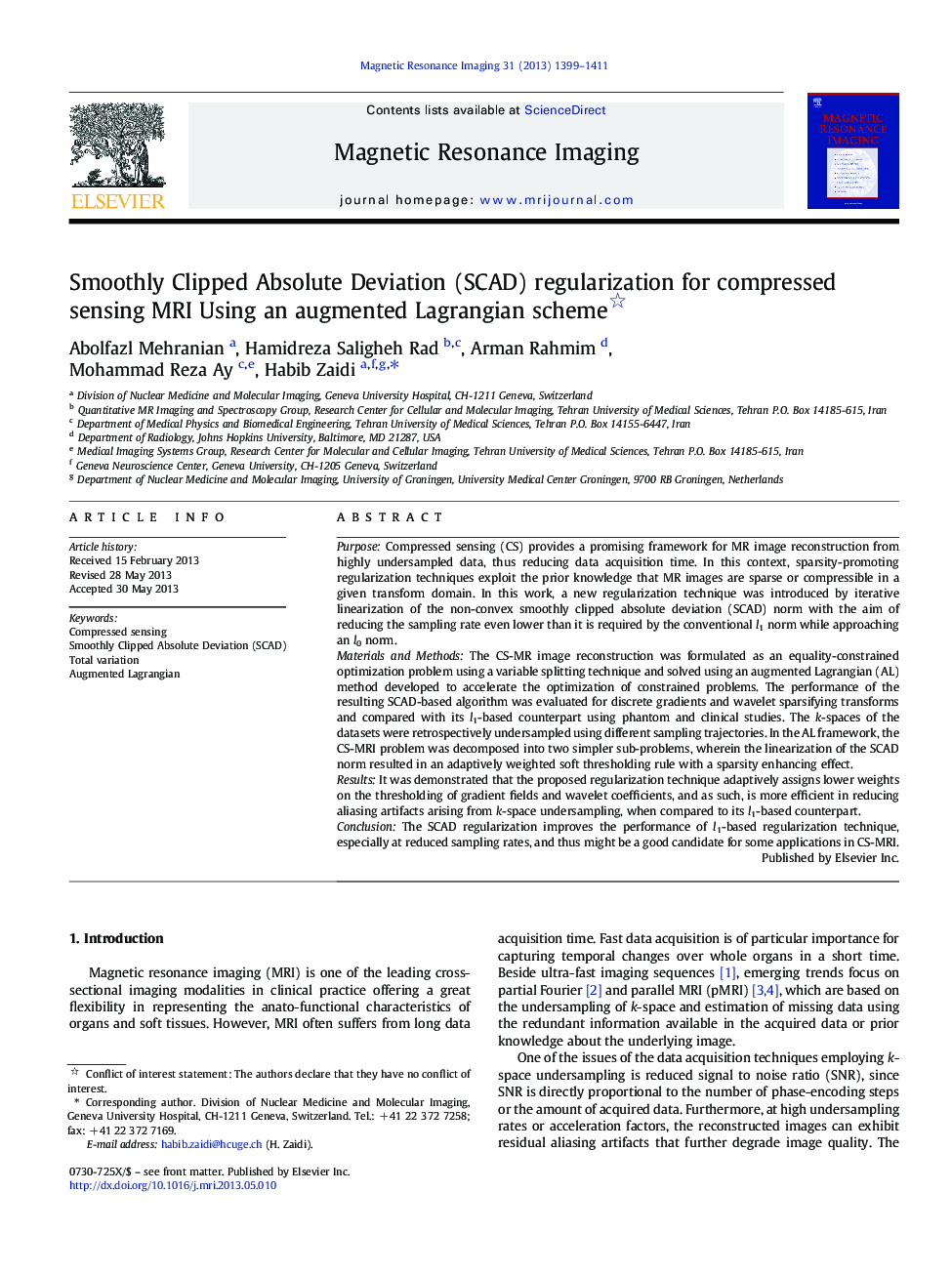| کد مقاله | کد نشریه | سال انتشار | مقاله انگلیسی | نسخه تمام متن |
|---|---|---|---|---|
| 1806378 | 1025203 | 2013 | 13 صفحه PDF | دانلود رایگان |

PurposeCompressed sensing (CS) provides a promising framework for MR image reconstruction from highly undersampled data, thus reducing data acquisition time. In this context, sparsity-promoting regularization techniques exploit the prior knowledge that MR images are sparse or compressible in a given transform domain. In this work, a new regularization technique was introduced by iterative linearization of the non-convex smoothly clipped absolute deviation (SCAD) norm with the aim of reducing the sampling rate even lower than it is required by the conventional l1 norm while approaching an l0 norm.Materials and MethodsThe CS-MR image reconstruction was formulated as an equality-constrained optimization problem using a variable splitting technique and solved using an augmented Lagrangian (AL) method developed to accelerate the optimization of constrained problems. The performance of the resulting SCAD-based algorithm was evaluated for discrete gradients and wavelet sparsifying transforms and compared with its l1-based counterpart using phantom and clinical studies. The k-spaces of the datasets were retrospectively undersampled using different sampling trajectories. In the AL framework, the CS-MRI problem was decomposed into two simpler sub-problems, wherein the linearization of the SCAD norm resulted in an adaptively weighted soft thresholding rule with a sparsity enhancing effect.ResultsIt was demonstrated that the proposed regularization technique adaptively assigns lower weights on the thresholding of gradient fields and wavelet coefficients, and as such, is more efficient in reducing aliasing artifacts arising from k-space undersampling, when compared to its l1-based counterpart.ConclusionThe SCAD regularization improves the performance of l1-based regularization technique, especially at reduced sampling rates, and thus might be a good candidate for some applications in CS-MRI.
Journal: Magnetic Resonance Imaging - Volume 31, Issue 8, October 2013, Pages 1399–1411